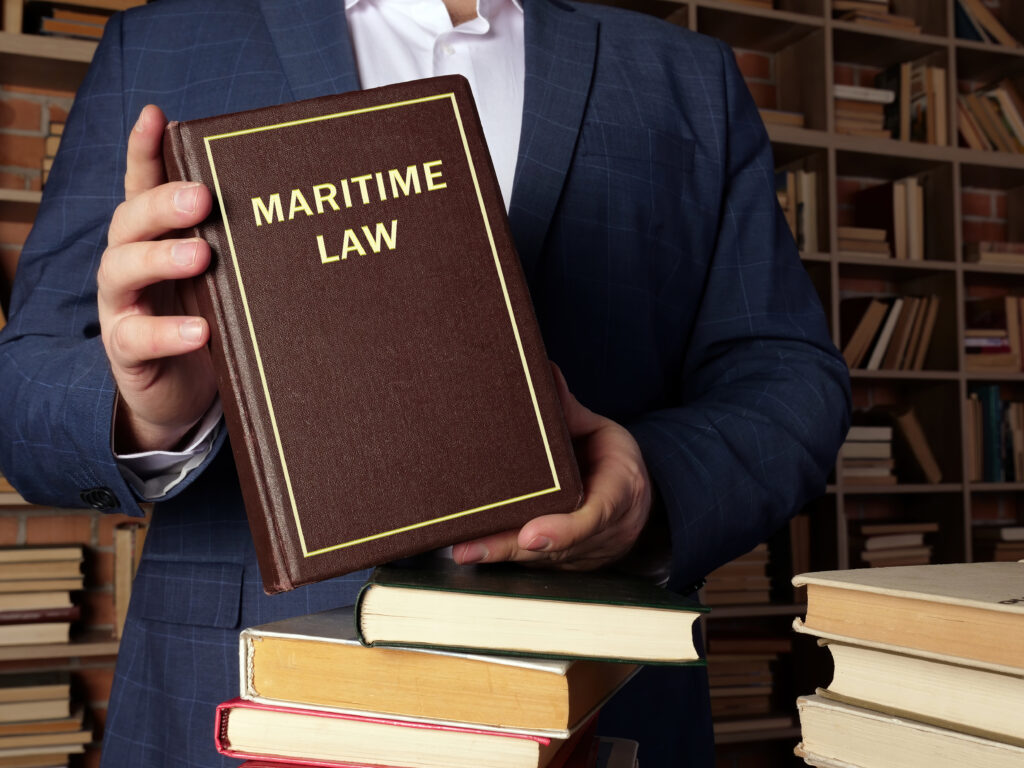Yes, maritime law applies to some oil and gas employees. If you spend a decent amount of time on a vessel that moves, it applies. There are also some special circumstances where very particular laws apply for death benefits or workers’ compensation.
For maritime law to apply, employees must be actually at sea. According to the Jones Act (also known as the Merchant Marine Act of 1920), a worker has to spend a substantial portion of their time (30% of working hours) on offshore work on a navigable vessel. That means nothing fixed or moored like an offshore oil platform. Often, this comes down to individual calculations of types of work done on different vessels.
What Happens If I Am Injured or Worse?
For most workers, their status under maritime law matters in issues of workers’ compensation. If you’re injured while working on an oil rig, you will have rights to compensation for at least some of your losses. The exact rights depend on whether they consider you a seaman under maritime law, another maritime law applies, or you’re just a regular person under US law.
In many cases, maritime law equates to the Jones Act, which has several different provisions that apply to oil and gas employees. However, other maritime laws can apply if the Jones Act doesn’t. The Death on the High Seas Act and the Outer Continental Shelf Lands Act both provide ways that you can get compensation for death or injuries.
Under the Jones Act
Under the Jones Act, a seaman has the right to a trial against the employer if they wish it. They have the right to a broader range of damages, including medical care, lost wages, and pain and suffering. A trial can take a long time, but there are potentially great gains to be had. The Jones Act and its trial mechanism allow for the widest possible range of compensation for injuries to be received, including physical, emotional, and financial losses.
Unseaworthiness
The Jones Act allows you to bring a claim of unseaworthiness of vessels against your employer. This covers almost any issue that makes working on the boat unsafe. The standard of proof for this issue is strict liability. That means if you prove unseaworthiness, then the owner of the boat and/or your employer is automatically at fault. You do not have to prove the other steps that you would normally have to prove under tort law.
From the unseaworthiness claim, you can get a personal injury claim. This falls under the “maintenance and cure” part of the law. If the shipowner is fixing the problems to get the ship back on the ocean, injured people are part of what it must fix.
Statute of Limitations
The Jones Act grants these additional rights to seamen on seafaring vessels. The backside of this is a short, three-year statute of limitations. If you’ve been injured, you need to talk to an attorney who knows maritime law as soon as possible.
Cases of Death
If a loved one dies on the high seas and the Jones Act doesn’t cover them, the Death on the High Seas Act (DOHSA) does. Any time a boat is over 12 miles away from the US coast, the DOHSA kicks into effect for oil and gas employees. (This law also covers other employees, passengers, volunteers, and anyone else on a qualifying vessel.) This law covers negligent acts of others and disasters that lack a personal cause.
The family can recover compensatory damages for what the victim would have brought to the household (salary, etc.) had they not died. Families can also get damages for loss of “care, comfort, and companionship.”
Outer Continental Shelf
The Outer Continental Shelf Lands Act (OCSLA) covers a lot of oil and gas employees who are not covered by the Jones Act. This law covers operations that are more than 12 miles away from the shore of the US but on a raised area of continental shelf. This covers many areas that house permanently or temporarily moored oil and gas rigs. The OCSLA provides for medical care, lost wages, lost earning capacity, disability payments, vocational rehabilitation, mental anguish, pain and suffering, and death benefits. While these benefit offerings may be narrower than what the Jones Act offers, the injured person can get them regardless of who is at fault.
The Law Onshore
The US considers seas within 12 miles of its shores to be its full property, and within that area, all federal laws apply, as does local state law. Regular criminal law applies to intentional acts, and tort law applies to unintentional acts.
However, there is some special relief for those working on or near shore. The Longshore and Harbor Workers’ Compensation Act (LHWCA) applies to most offshore oil and gas workers on close-to-shore vessels. The act requires that employers create a path to seek and recover lost wages and medical benefits. (It has higher benefits for permanent injury or death.) But it doesn’t require court. Most companies have opted into a federal workers’ compensation program that provides faster access to these benefits.
A rig can be in state waters as well as national waters. All the laws of the state in which you are in apply, as well. State workers’ compensation laws apply. You will need to make a timely claim and gather your evidence for workers’ comp. Even at this level, it’s good to have a lawyer who knows the workers’ comp landscape to help you out.
Where you work matters to an oil and gas employee. One maritime law applies if you are on a vessel that moves — at least 30% of the time. Another if you are stationary, but on the outer continental shelf. Death is a special case that needs a third law to cover it. And those are just the maritime laws. It can be difficult to determine which law covers your case and how you can get the best benefits possible under that law. A lawyer who knows maritime law can help.
Sources
Death on the High Seas Act (DOHSA), 46 USC Ch. 303. https://uscode.house.gov/view.xhtml?path=/prelim@title46/subtitle3/chapter303&edition=prelim#:~:text=When%20a%20cause%20of%20action,for%20which%20recovery%20is%20authorized
Jones Act (Merchant Marine Act of 1920). 46 U.S. Code § 30101 et seq. https://www.law.cornell.edu/uscode/text/46/30101
Longshore and Harbor Workers’ Compensation Act (LHWCA). 33 U.S. Code Chapter 18. https://www.dol.gov/agencies/owcp/dlhwc/lhwca
Outer Continental Shelf Lands Act (OCSLA) 43 U.S. Code § 1331 et seq. https://www.law.cornell.edu/uscode/text/43/chapter-29/subchapter-III









